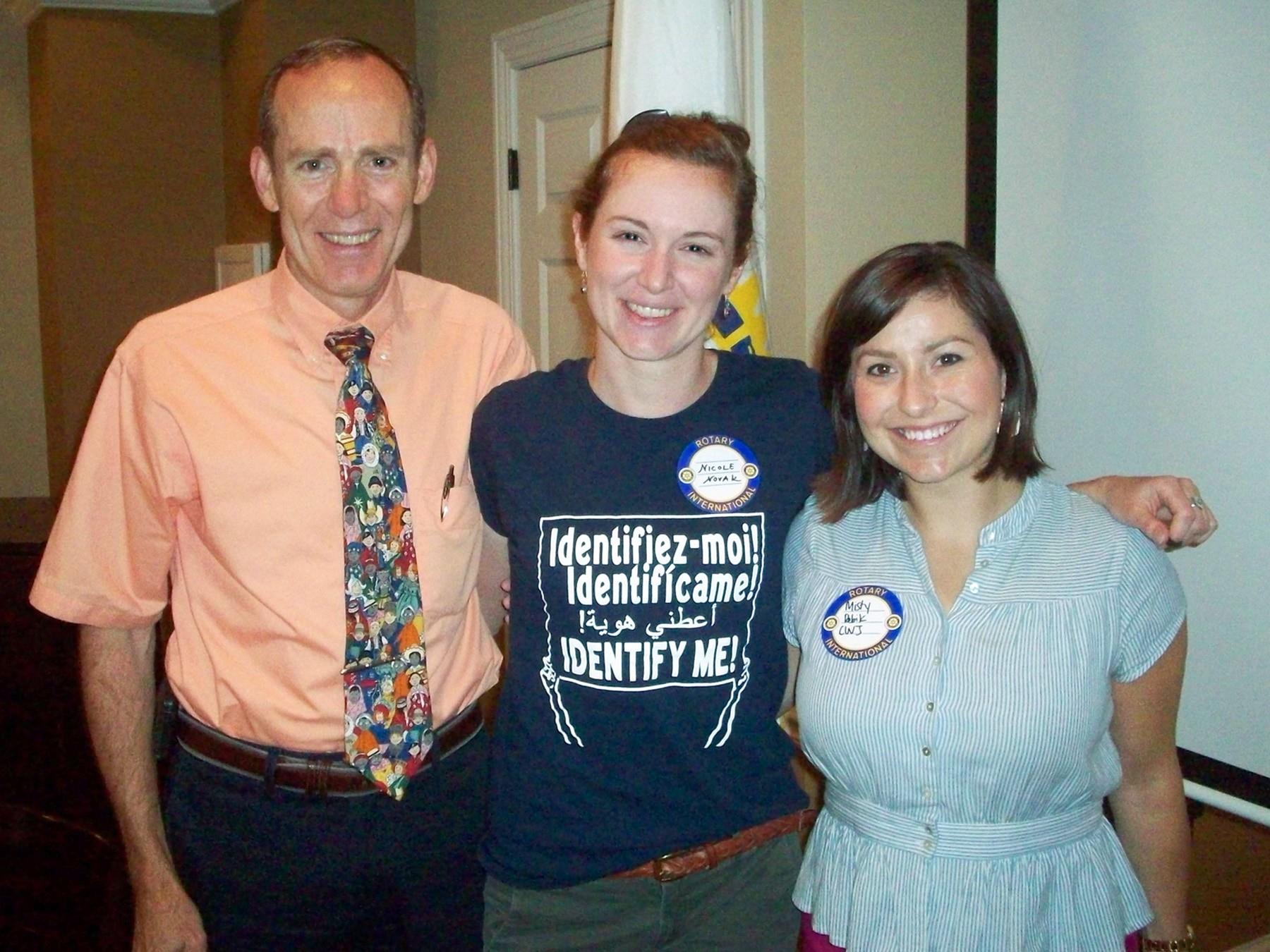Rotary File for July 14, 2015
Posted by Liz Nichols
on Jul 15, 2015
 Tom Novak introduces Nicole Novak and Misty Rebik for program on the new Johnson County ID program and the work of the Center for Worker Justice of Eastern Iowa.
Tom Novak introduces Nicole Novak and Misty Rebik for program on the new Johnson County ID program and the work of the Center for Worker Justice of Eastern Iowa.Guests and Visiting Rotarians
Gregorio Sanchez-- Guest of Nancy Pacha
Kermit Sheker-- IC Noon
Kris Henry-- Guest of Chris Knapp
Sophie Horstmann-- Exchange Student
Emily Gill-- Guest of Jack Cameron
Misty Rebik and Nicole Novak, Speakers
Deb Dunkhase subbed for the vacationing Myrene Hoover. In place of a President's Minute we recited the 4-Way Test.
Rotarians in the News
John Ockenfels had a prominent picture on display in the Rotary One Newsletter. Randy Willman also mentioned the recent article in the Press Citizen by Dave Parsons about sharing the road with bikes and motorcycles.
Announcements
A postcard sent by former exchange student, Laura Koch, was passed around. Laura is currently working in South Africa.
Jack Tank during his "happy bucks" time shared the link to get tickets for the production of "Midsummer Night's Dream" by the Combined Efforts Theatre.
Happy Bucks
Happy Rotarians included Val Martin, Margy Winkler, Carl Christensen, John and Deb Ockenfels, Jack Cameron, Chris Knapp, Roger Christian, the Langenfeld's, Deb Pullen-Van Aucken, Casey Cook, Dick Huber, Jack Tank, and Sophie Horstmann. Sophie thanked the club for the wonderful year in the U.S. She commented that her month-long journey through 13 states was amazing and a particular highlight of the year. She will be leaving for Germany on Thursday this week.
Speakers
Tom Novak introduced his daughter, Nicole, who is a former member of the West High Interact group, and a PhD candidate from the University of Michigan in Public Health. In the process of studying the relationship between stress levels and low birth weight on undocumented women in Iowa just after the Postville raid Nicole got interested in the ways a community identification program might relieve some of the stresses. She found that stresses concerning the possibility of deportation and sudden family break-ups caused by ICE deportations brings stress levels up and increases low birth weight problems for undocumented immigrant women by 30% above the norm, levels that might be expected among those who have experienced a recent major earthquake.
Nicole got involved in the effort of the Center for Worker Justice to start a community identification program. She had experienced some similar activity in the Ann Arbor community where she and her housemates have been making their home available for open houses for undocumented people, the homeless and others in need of a safe haven.
Nicole introduced Misty Revik, the director of the Center for Worker Justice of Eastern Iowa and together Misty and Nicole talked about the reasons behind a community identification program and the benefits that other communities have been able to document since starting similar programs. These communities have been able to demonstrate that crime rates go down when individuals who have not been able to get a drivers' license or other forms of ID have been able to qualify to get a community ID, because these individuals feel safer reporting crimes to the authorities. Those with community IDs can also find banks and a variety of stores willing to do business with them. This means that money earned by these formerly ID-less individuals can be banked instead of left at home and more vulnerable to loss from theft. These people are able to bring the millions of dollars they earn each year into the community's economy simply because they can now show picture ID.
Having a community ID does not guarantee that an illegal resident will not be picked up by the INS, but they can be assured that they won't be picked up because of the identification process, and they will be able to use the ID to help normalize their everyday transactions.